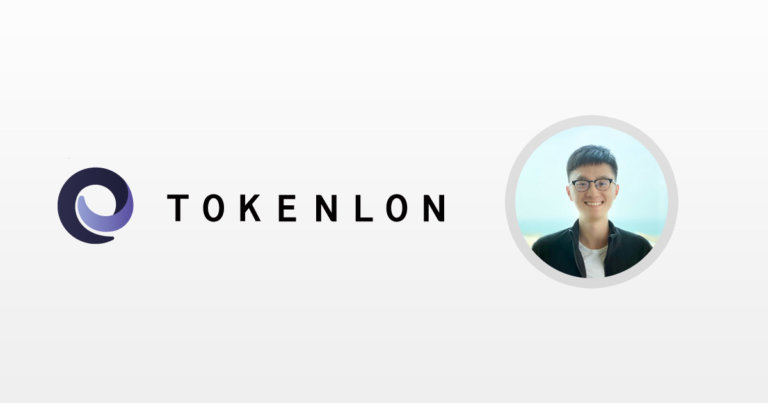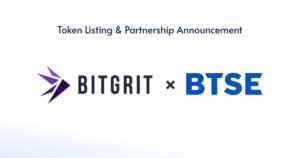 Tokenlon’s Head of Growth on the challenges of building a decentralized exchange, crypto predictions for 2021 and more
Tokenlon’s Head of Growth on the challenges of building a decentralized exchange, crypto predictions for 2021 and more Tokenlon’s Head of Growth on the challenges of building a decentralized exchange, crypto predictions for 2021 and more

Cover art/illustration via CryptoSlate. Image includes combined content which may include AI-generated content.
CryptoSlate recently had the opportunity to chat with Lucas Huang, the Head of Growth at Tokenlon, a popular decentralized exchange (DEX).
Before joining Tokenlon, Huang spent years working at Kyber Network and Deloitte Consulting. Huang studied computer science at the University of Chicago and accounting information systems at Michigan State University.
In the interview, we discuss:
- How Lucas got into crypto
- Why Tokenlon was created
- Tokenlon’s notable achievements or milestones
- The benefits of using Tokenlon over other DEXs
- Tokenlon’s product roadmap
- Utility of the upcoming LON governance token
- The biggest challenges of building a DEX
- Other blockchain projects Lucas is excited about
- Huang’s crypto predictions for 2021
Interview with Lucas Huang, Tokenlon Head of Growth
What is your professional background and how/when did you get into crypto?
My background is in finance and computer science. Before getting into crypto, I worked for a tech startup and a management consulting firm where we helped technology transformations for our client in the public sector.
Tell us about why you decided to start Tokenlon?
The Tokenlon team was initially part of imToken wallet team, imToken is the largest crypto wallet in Asia with over 10m devices. We believe the goal of a decentralized wallet should be to provide as much as value-added services to users as much as possible, but at the same time allow users to maintain self custody of their assets.
No doubt, token exchange is the most requested feature from imToken users. So we did lots of research in 2017 and started development in 2018. As we grew our user base and channels, we spun out from imToken and became a decentralized exchange protocol that can be integrated in many applications.
Where is your team located and why did you choose that jurisdiction?
The team is actually quite decentralized with people from different continents, but we do have a headquarter in Singapore. Singapore is one of the most crypto-friendly countries in the world. There are many crypto projects based there and crypto-related regulation/guideline is much clearer compared to other counties in China.
What are the pros and cons of working in your jurisdiction?
Like I mentioned, there is a pretty vibrant crypto circle in Singapore and regulation is friendly. You have a higher chance to find a regulatory framework or guideline that is relevant to the business you do in crypto.
Regarding the cons, it may be harder to source local developers compared to other countries. Unlike Silicon Valley in the US or Beijing in China, Singapore has only started to become attractive to developers in recent years. But luckily in crypto, we have a very friendly remote working culture, our developers are working remotely from different countries and we are happy about it.
What are some of Tokenlon’s notable achievements or milestones?
Good question! Our growth this year has been very encouraging. Since the launch of Tokenlon 4.0 version April 2019, we have helped more than 130k users(addresses) to trade over $4.6 billion in volume. We know that DeFi users(addresses) just broke 1 million a few weeks ago, that means Tokenlon is contributing more than 10% of users to the space.’
As Tokenlon is a decentralized exchange, all transactions are recorded online. You can check out this dashboard on Dune Analytics for more details.
What are the benefits of using the Tokenlon platform as opposed to other decentralized exchanges?
Since the latest update, Tokenlon automatically finds the best price out of three different liquidity sources: The professional market makers, Uniswap and Curve.
The market makers have been a key feature of Tokenlon since 2018. Unlike other orderbook or AMM exchanges, the market makers will provide fixed prices for your trade. This so called RFQ (Request-for-Quotation) trading system therefore shows the user the final trade price, before the trade happens, unlike all other exchange types.
First, unproven and new, we are now happy with the system, as it is mainly responsible for our growth.
We do provide additional features such as free trades for new users and a one-click user experience, all of which aim to take away the little pain points that decentralized trading usually has.
What can you tell us about the Tokenlon product roadmap? What upcoming features are you most excited about rolling out?
We just released our fifth major update to the DEX, Tokenlon 5.0, adding the aggregator functions mentioned earlier.
With Curve and Uniswap already integrated, we will be able to add a lot more tokens to Tokenlon, while our users can get the guaranteed best price without having to worry about which DEX to use.
On top, we just released our LON token.
What will be the utility of the Tokenlon token (LON)? How will it be distributed
We just released Tokenlon’s LON token, which will ultimately help our users to govern the DEX protocol.
As for now, LON gives trade fee discounts to our users and is issued via liquidity mining. On top, we rewarded our early users who traded and used the application.
This way we already achieved a broad and fair distribution of LON to our users.
What are the biggest challenges of building a DEX?
The biggest challenge is getting users. Tokens are plenty and also professionals willing to trade. But users have lots of choices already today.
This doesn’t need to be a bad thing for the space though. The more competition, the more improvement, the protocols need to make. I think our trading volumes show that we did quite a good job so far, but we won’t rest but try to work with user feedback to keep innovating.
What other projects and/or blockchain developments are you most excited about?
Speaking about DEXs, Uniswap is interesting. Maybe AMMs in general, as many professionals from the finance space seem to be unable to wrap their heads around the success of the trading architecture. Personally, I think we will see AMMs and other very specialized trading venues building the backbone of what is to become the user-facing DEX space. With our market makers and the aggregation features we play in both fields.
In general, I’d say DeFi is interesting. Not only what we have seen this summer, like liquidity mining, unfriendly protocol takeovers and governance tokens. But there is still so much to come. $14 billion in tokens are locked in DeFi smart contracts, which is only a tiny little bit of what traditional companies, let alone financial markets handle. I’m positive we won’t be bored by DeFi any time soon.
Do you have any blockchain and/or crypto predictions for 2021 and beyond?
If I had to guess, I’d say there will be more synthetic assets. Already today, we see a couple of players in that particular segment of the DeFi space. But the products seem to be still looking for the real breakthrough.
Regulations won’t become fewer, but rather more plenty. There will be some major steps taken by the US regulators to bring legal frameworks around blockchains and tokens.
What are the biggest obstacles for mainstream adoption of crypto?
Regulation as well. If you look at institutional players in the market. Some of them already entered cryptocurrency positions. But many many of them need to have clearer legal frameworks.
And on the DeFi side, we need more experimentation, more willingness to innovate. User will have a hard to time use the applications, and developers will have to improve in a neve ending circle towards mass adoption. Because, let’s be honest, crypto is still hard to use if you are not an expert.
What is your most controversial opinion relating to blockchain and/or cryptocurrency?
Crypto – speaking of the technology – will be used by many people, but it will just be as boring as http and other technologies that nobody really cares about today. Still, those technologies are holding up the very infrastructure of our society today.
Connect with Lucas Huang
Lucas Huang is currently head of growth at Tokenlon.



 Farside Investors
Farside Investors 















































































